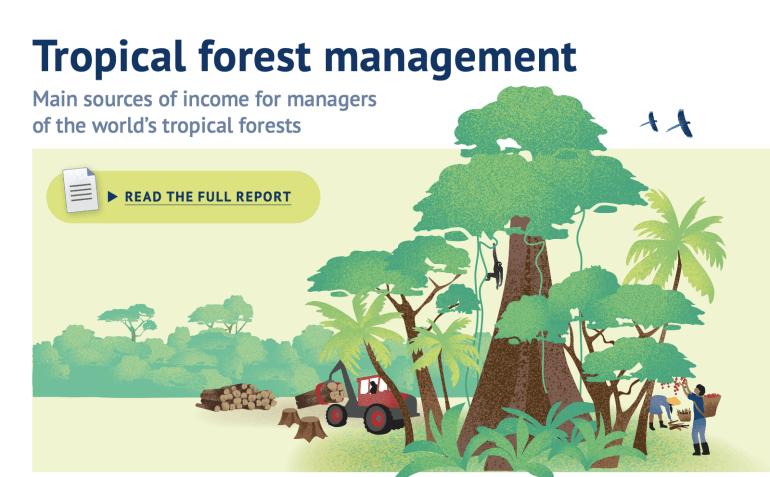

07.11.2025
On 6 October 2025, our member Stichting Probos released the results of the project “Exploring current and potential revenue streams for forest managers in the tropics,” implemented on behalf of FSC Netherlands.

The study provides a comprehensive overview of the economic landscape for tropical forest managers, analyzing both global trends and a detailed case study in Suriname. It examines how timber, non-timber forest products (NTFPs), and Payments for Ecosystem Services (PES) contribute to sustainable forest management — and how these income sources can be diversified to secure both livelihoods and forest conservation.
The study confirms that timber remains the cornerstone of income for forest managers in tropical regions, while the economic potential of NTFPs such as nuts, resins, oils, and medicinal plants is still largely untapped due to informal trade channels and limited market access. PES — including carbon payments — represents a promising yet still developing opportunity, constrained by market immaturity and regulatory hurdles. The report emphasizes that diversifying revenue streams through NTFPs and PES can improve the financial resilience of forest managers and support the transition toward sustainable forest management, provided enabling frameworks and fair market mechanisms are established.
In Suriname, where over 90% of the territory is forested, the forestry sector remains heavily reliant on timber exports, particularly to Asian markets, with minimal local processing. Although NTFPs and potential PES schemes hold promise, their integration into formal markets is still limited. The study recommends that FSC Netherlands continue promoting Lesser Known Timber Species (LKTS), raise awareness about the FSC Ecosystem Services Procedure, and support group certification initiatives in Suriname — steps that would enhance the economic viability of sustainable forest management and strengthen long-term forest conservation efforts.